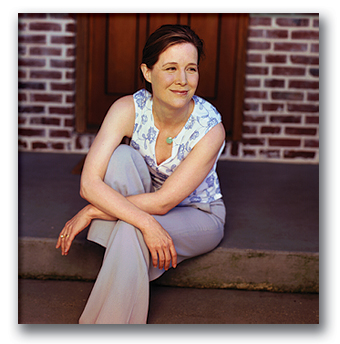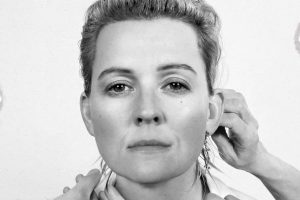There is no particular person author Ann Patchett has looked to for inspiration. Instead, she credits her Catholic faith for teaching her a boundless capacity for creativity and appreciation for metaphor. Patchett has harnessed that power to her audience: She is the recipient of the PEN/Faulkner Award and the Orange Prize (2002) and a finalist for the National Book Critics Circle Award for her novel Bel Canto, which sold more than 1 million copies in the United States and has been translated into 30 languages.
Her most recent novel, Run, has a suspenseful plot that takes place in the span of one day. Run offers a glimpse into the remarkable ways in which Patchett’s characters are transformed by secrets revealed and by a family’s unexpected circumstances.
Patchett’s insights are also expressed in an essay based on a commencement address she gave at Sarah Lawrence College in Bronxville, New York. What Now? reminds those on the cusp of change that their journey is as important as their destination.
Although she says her readers are the last thing on her mind when writing her stories, the beauty and redemption at the heart of a Patchett book are so captivating, her readers can’t help but feel that she wrote it just for them.
Why do you think Catholics who both adore and sometimes struggle with their faith play such a major role in your stories?
Because I am one, both adoring and struggling. I went to Catholic school for 12 years, and it’s just so much a part of the fabric of my life that I would have a hard time picking it out of things. It’s not that I’m trying to put it into my writing. It’s that I would have a hard time getting it out.
Do you have any special desire for your readers when they come to your stories?
I honestly never write a novel with a reader in mind. I write my books entirely for myself. I don’t sell my books before I write them. I don’t sell them until they’re finished, and for the most part nobody reads them while I’m writing them. It is this very special time where I’m telling myself the story that I want to hear.
In the same way when I cook, I cook the food I like to eat. I’m not a great cook, but I love my own cooking because I cook to my own taste. When I write, I write the kind of story I want to read. I can’t even imagine sitting down and thinking, “I wonder what people would want now? How am I going to make the reader feel now?” I can’t ever fully imagine people reading my books.
But many do!
I wonder if people are buying them and using them as building material or putting additions on their house with them or something. I meet people who tell me my work was so meaningful to them, and I smile and I nod—but I know there’s some way in which I don’t make that fundamental connection between what I do in the privacy of my home when I’m sitting in my study working and what somebody else is doing in the privacy of their home years later when they’re sitting in their study reading.
It would be quite an impersonal thing to be thinking about people you don’t know as you write.
It would make you crazy because you’d have this enormous jury sitting on your shoulder all the time saying, “Now I don’t think I’m going to like it when you do that.”
This very idea might be what’s responsible for so much bad writing and the bad movies that seem so geared toward what audiences may want in a story.
Right, and the question that everyone asked me when I was out on book tour with Run was, “Wasn’t it hard to write a novel after the success of Bel Canto?” And I thought, well, no. Why would I be thinking about what the readers might expect now? Was I supposed to sit down and write another novel about opera and terrorism?It would never occur to me that there was this giant gallery of people looking down on me saying, “This is the kind of story I want to hear.” Writing is a very selfish thing. In the same way if you were a painter, you would paint what you saw, what moved you. You wouldn’t sit there with a paintbrush and think, “I wonder what color her living room sofa is, so I could paint it an orange that would match it just right.” You’d just paint what you feel. You’d paint what moves you.
That seems to be what your readers are hungry for.
Then that’s my happy coincidence, but that’s all it is: a happy coincidence. When we talk in terms of faith, I’m not trying to put a certain message out. It’s more that Catholicism really trained me for fiction writing. I think it has to be the greatest religion for a fiction writer because it is so much a tradition of story and parable.
And imagination.
Precisely. I spent my whole childhood on my knees in front of pieces of carved marble, and in my heart I was filling that stone with enormous life. That gets at the essence of storytelling.
Could you pinpoint any specific influences from your childhood?
I do believe that there’s only a certain period of time when we can be influenced. It’s not so much the books that you read; it’s when you read them. The first adult books that I read as a child were the writers that my parents were reading. Saul Bellow and Philip Roth were the two writers that I started reading when I was 12 or 13. That puts me squarely in the Jewish camp.
What was your family life like?
I was born in Los Angeles, and I grew up with my mother and stepfather in Nashville. My parents were divorced, so when I use the word “parents,” it includes general affection to everyone because my parents both remarried people that I loved very much.
All of my parents were great readers, and as a family we were all readers. We were people who ate dinner together and then we all went to our rooms and got a book. We never watched television.
My father was the Catholic in the family, and he came from a deeply Catholic background. My mother was not Catholic, but when my parents divorced and my mother moved away, it was very important to my father that we continue being Catholic. So my mother put us in a Catholic school so that we could get a Catholic education. That’s all by way of saying that we didn’t go to church on Sunday, but we would go into school early to say the rosary every morning with a nun.
It sounds like much of your faith background came from school.
We moved an awful lot when I was growing up, so my school, which was this old Gothic convent, was the consistent thing in my life. We moved; we shifted around. There was always a good deal of upheaval, but the school was always the same, and it was as much my home and my family as the house where I lived with my parents.
Did you have a good experience with the nuns?
They were Sisters of Mercy, and I did have a good experience with them. It’s something that I have thought about a lot recently.
In the past several years I have reconnected with one of the sisters who was my English teacher from first to third grade. We’ve become very close friends. That friendship has given me the opportunity to think back about these women. They were very close friends with one another. They devoted their lives to intellectual and spiritual pursuits.
I really didn’t want to get married and have children when I grew up. I always wanted to be a writer and have a professional life, and strangely enough the nuns were very good role models for that because they hadn’t taken the traditional path.
It’s pretty radical, actually.
It certainly is when you think about it. Their devotion to one another, to God, and to learning provided a good example.
Is the school still around?
It exists not as a 12-year school but first through eighth grades. What is really horrifying is that the convent where all the nuns lived on the top floors has been made into an office building with shops for waxing and tattoos. It’s so confusing! The room that was the chapel, which was beautiful and the most important place in my life, is now a rented party space. Talk about trauma.
Your stories offer a lot of hope and redemption for your characters, and by extension for us as readers. You allow us to see how good can come out of painful circumstances and the depths of suffering. This seems like a fundamentally Christian response to the world, and to suffering.
I don’t know if that’s true, if that is inherently or wholly Christian, as opposed to Jewish or Buddhist or Muslim. I’m fond of my faith, but I’m hesitant to say this hopefulness is strictly Christian because I think hopefulness is part of other faiths as well.
Why do you think healing gets woven into your work in the way that it does?
It certainly is something that goes back to Catholicism, and it’s a beautiful part of a story, but a lot of times I write about things I wish were true.
It’s not so much that I believe in certain types of healing in my rational mind but I think if I got to create the world, this thing would be true. And when I write a book, I do get to create the world.
How do you think the death of your friend Lucy Grealy—author of Autobiography of a Face (Harper)—and writing a book about her in Truth & Beauty (Harper) has affected your sense of God and of healing?
I don’t think it has. When Lucy first died I went through a period of such silence. I was straining to hear from her, I kept thinking that I would feel her, that there would be something and there wasn’t. The quiet of it all made me feel very empty, isolated, and full of doubt. But that’s such an incredibly standard response to death. We all lose the people we love the most in the world, and then we lose ourselves. That’s the way it has been from the beginning of time and will be to the end of time. It doesn’t necessarily affect my feelings about faith or about healing.
But in grieving we do hopefully get to a point of gratitude and joy for our lives and the lives of our loved ones.
It takes time. That was the wonderful thing about writing Truth & Beauty. I had the luxury of so much time to think through all of those things because I made my grief into work. My job was to write that book. People weren’t pressing me to get over it because I was working.
One of the main reasons I wrote the book was because after she died people kept asking if I was doing better. I didn’t want to be better. I wanted to dig my hole and stay right here. By writing the book I got to stay in bed. I literally wrote that whole book in bed. I put the computer on a cookie sheet and put all of her letters and pictures and the dog and everything in bed, and I just stayed there for months. It was great.
People think that book must have been hard to write. But I don’t know what would have happened to me if I hadn’t written that book, if I hadn’t taken months and months to just stay with her until I was ready to move on.
So the writing itself is the healing experience?
The time is. Because I was working, that allowed me to take the time, and the time was what I needed.
I think a lot about lives of the saints and parables and miracles and what is and isn’t possible and that I grew up believing without a doubt that all of these things were possible. At first I thought, “Well, that’s a true story, loaves and fishes and everything else. It’s a beautiful, true story; it’s magic or a miracle.”
Then as I got older I thought of it all as a metaphor for kindness, generosity, and love: If you keep putting yourself out there and giving the best of yourself away, everything will come back to you. These questions about belief, healing, afterlife, and God and where I come down on all those things—you can believe them literally as stories or you can believe them as metaphor.
Healing isn’t necessarily beating your cancer. Healing is sometimes accepting. Healing is metaphor. This works so well for novelists, being able to tell a story that exists on two planes. It’s something you really want to read, something that keeps the pages turning and something that has some deeper meaning that resonates with us after the book is closed. That seems very much true at the heart of Catholicism, and it’s comforting.
Stories are very comforting but especially when they have something that years later you can think back on and say, “I didn’t see at the time, but I do now.” I used to think that the story about camels passing through the eye of the needle was the needle that I sewed with, and I was probably 20 before somebody told me, “No, that’s actually a place, the ‘eye of the needle,’ and if you were too rich and you had too many bags on your camels, then you couldn’t get through.”
I learned through story. I’m very grateful to Catholicism for a lot of things but mostly for that.
It has brought you to a place where you’re giving that to others.
If that is true, that is a lovely thing.













Add comment